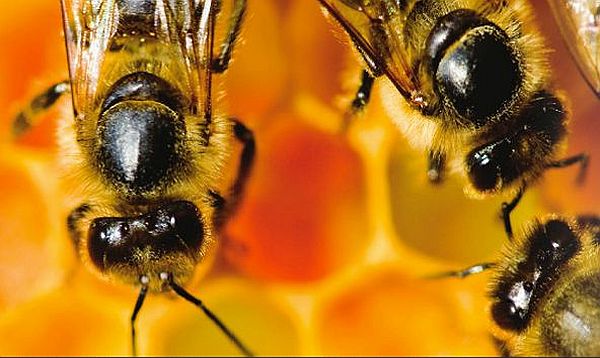Beekeepers in Mexico are fearful that genetically modified crops are killing the honeybee.
A new study published by Scientific Report stated that genetically modified seeds are "bad news" for Mexican beekeepers and specifically points to GMO soybeans as a threat. Mexico is the fourth largest producer of honey in the entire world.
The presence of GMO pollen in honey makes it extremely difficult for Mexican beekeepers to export their product to Europe, where GMO laws are stringent. If honey contaminated with genetically modified pollen is not outright rejected in Europe, it has to be sold for substantially reduced rates. Smithsonian Tropical Research Institute scientists have found that soybean crops were the source of GMO pollen in honey produced in the Yucatan. The study went on to reveal that the belief that self-pollinating soy flowers are never visited by honeybees is incorrect.
Senior researcher David Roubik had this to say about GMO soybeans and honeybees, "Bee colonies act as extremely sensitive environmental indicators. Bees from a single colony may gather nectar and pollen resources from flowers in more than a 75 square mile area. With an economy based on subsistence agriculture associated with honey production, the social implications of this shift in the status of honey are likely to be contentious and have profound implications for beekeeping in general."
 |
Neonicotinoids are one of the primary chemical elements in Monsanto agricultural products.
The bee colony collapse study also revealed that exposure to chemical pesticides like neonicotinoids in crop fields impact individual bees. The exposure to popular chemical herbicides and pesticides like Monsanto manufactures by even a single bee can cause a honeybee colony to fail.
Lead scientist John Bryden said, "One in three mouthfuls of our food depend on bee pollination. By understanding the complex way in which colonies fail and die, we’ve made a crucial step in being able to link bee declines to pesticides and other factors, such as habitat loss and disease which can all contribute to colony failure."
"Exposing bees to pesticides is a bit like adding more and more weight on someone’s shoulders. A person can keep walking normally under a bit of weight, but when it gets too much – they collapse. Similarly, bee colonies can keep growing when bees aren’t too stressed, but if stress levels get too high the colony will eventually fail."
Fellow study author Vincent Jansen noted that the research project also provided significant insights into the biological process of the little pollinators. Jansen also added that the researchers found the manner in which bees work together is intriguing and that the failure of the insects to work together can also contribute to colony failure and the decline of the hive. The research was funded as part of the "Insect Pollinators Initiative."
Original Story


